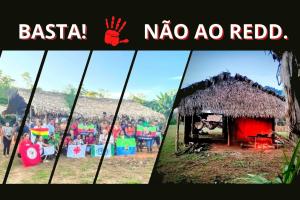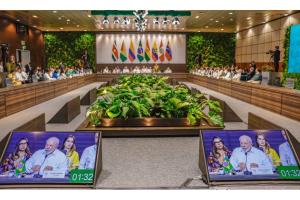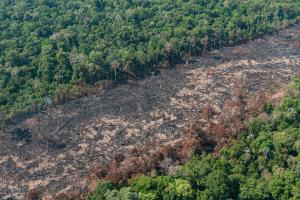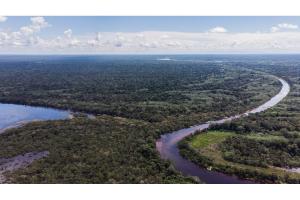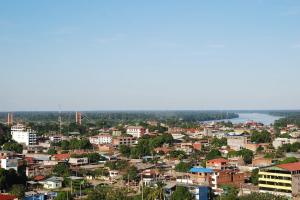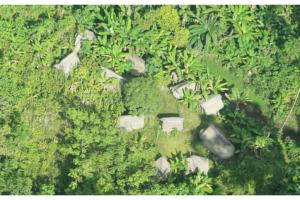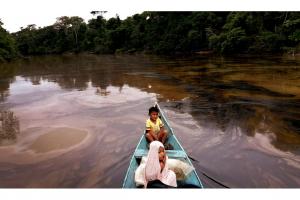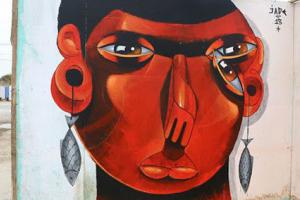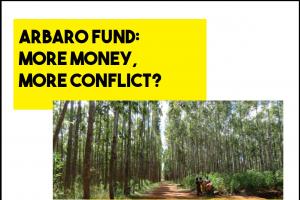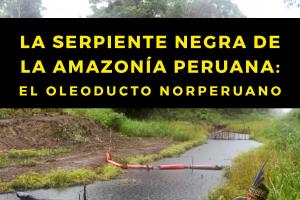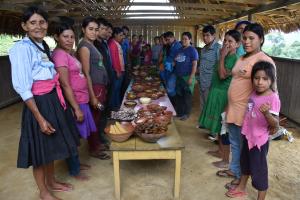DECLARATION OF REJECTION OF REDD IN TERRITORIES OF INDIGENOUS PEOPLES, AND PEASANT, TRADITIONAL AND AFRO-DESCENDENT COMMUNITIES OF LATIN AMERICA
Alto Turiaçu – July 2024
Peru
Action alerts
30 July 2024
Indigenous, peasant, traditional and Afro-descendent peoples from the Amazon region and Central America call organizations and social movements all over the world to endorse this declaration rejecting carbon projects in their territories.
Bulletin articles
27 February 2024
The Amazon Summit: Extractivism and violence in the name of the “bioeconomy” and of “sustainability”
Using the argument of “sustainable development”, governments in the Amazon region continue providing incentives for extractivism. In the face of this, indigenous leader Alessandra Munduruku vents her thoughts: “What we need is the demarcation of indigenous territories. Enough talk of bioeconomy, of sustainability, when there is violence in the here and now.”
Bulletin articles
27 February 2024
The Amazon region is one of the final frontiers of resistance to capital expansion. This is epitomized by the struggles of social activists such as Chico Mendes, as well as by the presence of most of the earth’s remaining indigenous peoples in voluntary isolation. However, different forms of ‘green’ extractivism are currently and increasingly advancing on this territory.
Bulletin articles
26 February 2024
Indigenous communities of the Peruvian Amazon Basin have created a network to defend their rights to territory and self-determination. Their struggle is not only against deforestation, but also against conservation and carbon market projects—such as REDD projects—that cause more injustice and internal conflicts.
Other information
26 February 2024
The certifying company has turned a blind eye to the fact that the Peruvian government has not only not demarcated the indigenous territory but has also given the company two contracts for concessions.
Other information
30 March 2023
A sector of Peruvian Congress with ties to the logging and fossil fuel industries presented a bill, which, if passed, would lead to certain extermination of the country’s Indigenous Peoples in voluntary isolation.
Bulletin articles
12 September 2022
In the northern Peruvian Amazon, indigenous communities affected by contamination from oil exploitation are also prevented from accessing clean water. One hundred communities and their federations have been waging a unified, constant and coordinated fight for eleven years to defend their territories and rivers.
Bulletin articles
17 November 2020
This article is about how so-called ‘development cooperation’ hides, and grants legitimacy to, an agenda of dispossession and capitalist expansion; and how this ‘cooperation’ actually co-opts the political agenda of grassroots movements.
Publications
6 July 2020
Company plans 75,000 hectare expansion of Industrial Tree Plantations in Seven Countries in the Global South: Sierra Leone, Ghana, Uganda, Ethiopia, Peru, Ecuador and Paraguay. Download the leafelt to know more about the company and why communities should be alert.
Other information
25 November 2019
Since 1979, more than 100 oil spills have occurred along the North Peruvian pipeline – a mega construction, stretching a massive 1,106 km from the Amazon to the Peruvian coast, operated and owned by state company Petroperu. The large majority of the spills happened after 2008 in Loreto, home of 27 different indigenous peoples, including indigenous groups living in voluntary isolation.
Bulletin articles
30 September 2019
The government claims that small-scale agriculture is responsible for deforestation. But this claim ignores government policies that drive land-use changes and destructive markets as well as the exclusion of indigenous peoples through the creation of reserves.
